#Dáil Cabinet
Explore tagged Tumblr posts
Text
#OTD in 1921 – Dáil Cabinet Discusses Treaty Proposals.
Following an acrimonious and poorly written meeting minutes, Michael Collins and colleagues were asked to return to London for further negotiations. The Irish delegation consisted of Collins, Arthur Griffith (Chairman of the Delegation), Robert Barton (Minister for Economic Affairs), George Gavan Duffy and Eamonn Duggan. The delegates were styled ‘Envoys Plenipotentiary’ and given power to…

View On WordPress
#Anglo-Irish Treaty Negotiations#Arthur Griffith#‘Envoys Plenipotentiary’#Éamon De Valera#British Commonwealth#Dáil Cabinet#Dublin#Eamonn Duggan#England#George Gavan Duffy#History of Ireland#Ireland#Irish Civil War#Irish History#Irish War of Independence#Michael Collins#Robert Barton
8 notes
·
View notes
Text
#dail cabinet#ireland#cabinet to sign off on implementation plan for eu migration and asylum pact#asylum seekers#refugees#migrants#european union
0 notes
Photo

On this day, 1 December 1921, striking workers at Castleconnell fisheries in Ireland occupied their workplace and declared a soviet (workers council). The following day at a Dáil cabinet meeting, labour minister Constance Markiewicz was instructed to contact the Irish Transport and General Workers' Union (ITGWU) and inform them that the soviet would be suppressed by the Irish Republican Army. Police and volunteers were also to be used to evict the strikers. However it appears this did not transpire, and the workers eventually vacated the premises voluntarily on December 22 after the boss agreed to arbitration, which later ruled in favour of the workers. Pictured: a soviet at Bruree Creamery, 1921 https://www.facebook.com/workingclasshistory/photos/a.296224173896073/2149224838595988/?type=3
113 notes
·
View notes
Note
Okay so I'm work shopping this half monarchy half Republic thingy system for a WIP. So there are three sets of councils or rather sets of different social classes that form one really big council. The first one is made up of the matriarchs of 15 different houses of nobility, the seats in this set are given to the daughters of the previous matriarchs. The second is made up of elected officials from major cities/ports, as i said they are elected by both the nobility and common people, 1/2
2/2 the third is made up of a combination of the chieftains/governors of the different regions, they can either get their position from blood family or election depending on the smaller local government from their respective regions. Wait I wanna ask you for is, could this system work? And if it can't how long can it last before devolving into civil war and chaos? That, and general critic, this is a WIP that's still very early in production. Thanks! 💙
It would work just as long as each of these councils work in tandem together, consider them as governing bodies such as the Cabinet, the Senate/Parliament/Dáil, House of Representatives. It can work as long as each part can run alongside the other without a breakdown
12 notes
·
View notes
Text
Ireland
In Dáil Éireann, the lower house of the Oireachtas (Irish parliament), the chair (Ceann Comhairle or replacement) rules in accordance with standing orders on disorderly conduct, including prohibited words, expressions, and insinuations.[11] If the chair rules that an utterance is out of order, then typically the member withdraws the remark and no further action occurs.[12] The relevant words are retained in the Official Report transcription despite being formally withdrawn.[13] The chair cannot rule if they did not hear the words alleged to be unparliamentary.[14] A member who refuses to withdraw a remark may be suspended and must leave the chamber.[15] A periodically updated document, Salient Rulings of the Chair, lists past rulings, ordered by topic, with reference to the Official Report.[11][16][17] Rulings superseded by subsequent changes to standing orders are omitted.[11] It is disorderly for one Teachta Dála (TD; deputy) to "call another Deputy names",[18] specifically including:[19]
brat, buffoon, chancer, communist, corner boy, coward, fascist, gurrier, guttersnipe, hypocrite, rat, scumbag, scurrilous speaker, or yahoo;
or to insinuate that a TD is lying[20] or drunk.[21] The word "handbagging" is unparliamentary "particularly with reference to a lady member of the House".[22] Allegations of criminal or dishonourable conduct against a member can only be made by a formal motion.[23] Conduct specifically ruled on includes selling one's vote, violation of cabinet confidentiality,[24] and doctoring the Official Report.[25] Charges against a member's political party are allowed; the chair decides whether an allegation is "personal" or "political".[26] Members may not refer to the Dáil or its proceedings as a:[27]
circus, farce, slander machine.
During a December 2009 debate, Paul Gogarty said, "With all due respect, in the most unparliamentary language, fuck you Deputy [Emmet] Stagg."[28][16] He immediately apologised and withdrew the remark.[28][16] The debate's temporary chairman at the time lacked the Ceann Comhairle's power to suspend disorderly members;[29] in any case, once Gogarty withdrew the remark he was not out of order, although his words led to general disorder in the chamber.[30] Gogarty's apology noted ("rather tenuously"[31]) that the word fuck was not explicitly listed in the Salient Rulings.[32][33] Ensuing calls for tougher sanctions led the Dáil Committee on Procedure and Privileges (CPP) to refer the matter to a subcommittee,[33][34] which said the correct response was for the CPP to issue a formal rebuke, as had in fact been done to Gogarty.[35]
After heated interruptions to a November 2012 debate, Ceann Comhairle Seán Barrett said "This is not a shouting match, like gurriers on a street shouting at each other."[36] A spokesperson said gurriers was not out of order since it was not addressed at an individual.[14]
I love my (primary) ancestral country.
4 notes
·
View notes
Text
The new Irish government

The Government of the 33rd Dial or the 32nd Government of Ireland is the public authority of Ireland which was shaped on 27 June 2020, following exchanges on a program for government for an alliance administration of Fiona Fail, Fine Gael and the Green Party that followed the 2020 general political decision to Dali Emirian hung on 8
The Seaman in Ireland
tune in) SHAN-əd(h) AIR-ən, Irish: "Senate of Ireland") is the upper place of the Oireachtas (the Irish assembly), which likewise involves the President of Ireland and Dáil Emirian (the lower house).
Ireland had a female president
Mary Therese Winifred Robinson (Irish: Máire Mhic Róibín; née Bourke; brought into the world 21 May 1944) is an Irish autonomous government official who filled in as the seventh President of Ireland from December 1990 to September 1997, turning into the primary lady to hold this office.
How would you become leader of Ireland?
Methodology
1. be a resident of Ireland,
2. be at any rate 35 years old, and.
3. be named by: in any event twenty of the 218 serving individuals from the Houses of the Oireachtas, or. at any rate four of the 31 district or city Councils, or. oneself, on account of an officeholder or previous president who has served one term.
The President speak to residents
The President should likewise fill two different jobs—head of gathering and boss resident. ... This implies the President ought to speak to the entirety of the individuals of the United States. Residents anticipate that the President should work for their inclinations and give moral administration. The President should do every one of these parts simultaneously.
The 7 forces of the president
The Constitution expressly relegates the president the ability to sign or reject enactment, order the military, request the composed assessment of their Cabinet, gather or defer Congress, award respites and exculpates, and get diplomats.
The two most significant jobs of the president
The President's Roles
Role Summary
Boss Executive Executes the laws, selects key government authorities, awards exculpates and respites
Administrator in Chief Runs the military
Boss Diplomat Negotiates with different nations
Boss Legislator Signs or blackballs enactment, presents enactment, works with Congress on the financial plan
FEMA have control over the president
The majority of the significant FEMA works that identify with government crises and catastrophes include the activity of Presidential power, having been given to FEMA by Executive request, despite the fact that the first wellspring of that authority is ordinarily to be found in a resolution
The informal jobs that the president fills
The Constitution names the president as the top of the presidential branch • of the U.S. government. The president's true and informal jobs include: CEO, boss • chairman, president, international strategy pioneer, boss plan setter, head of state, party pioneer, and boss resident.
4powers of the president as laid out in Article 2
He will have Power, by and with the Advice and Consent of the Senate, to make Treaties, given 66% of the Senators present agree; and he will assign, and by and with the Advice and Consent of the Senate, will name Ambassadors, other public Ministers and Consuls, Judges of the high Court, what not https://www.facebook.com/endakennyofficial
1 note
·
View note
Text
Gene Kerrigan, writing in the Sunday Indo ...
Countdown to a Christmas like no other
LOOKING forward to Christmas? Any plans yet? Next Saturday it’ll be a year since Brown Thomas opened its 2019 Christmas Shop.
A little over two months from now, working on the 2019 schedule, there’ll be selection boxes in the supermarkets and the first Christmas adverts will be popping up on TV.
Of course, the schedule we’re working off these days is a world away from that long-ago 2019.
Three midlands counties — 400,000 people — are suddenly back under lockdown. A week ago, such a twist never entered their minds.
Who knows what next week, or next month — much less next December — has in store for any of us, or all of us?
Our success or failure in dealing with this bloody virus will be decided to a great extent by the type of Ireland we’ve made.
Or, to be more accurate, the type of Ireland we’ve allowed others to make for us.
Don’t know about you, but I’ve stopped saying, “When this is over, I’m going to...”
I’m not confident Covid-19 will be beaten in my lifetime, though I’m still hopeful.
You can feel the mood in the country: tired of it, pissed off at it, we’ve done the virus thing, now let’s move on.
There’s an irritation at the Government and at Nphet, for imposing restrictions that put our lives on hold, that lock down the economy and perhaps do damage to our children.
We speak as though Nphet imposes a form of penance. And we did our penance. We flattened the curve, we followed the rules, we washed our hands, we stayed indoors. When we came outside we wore the mask, we stood apart from each other, we made dreadful sacrifices — funerals and weddings foregone, hugs and kisses denied, friends unseen, no cinema, no sports, no theatre, no shopping trips, no holidays, no restaurant meals, no pints.
Some are edging towards a wild solution: let it rip, the cure is worse than the disease, they say.
However, polls have consistently shown that the resilience of most of the people is greater than the resilience of the politicians or the pundits — whose impatience threatens us.
The virus has killed over 2,300 on the island, over 720,000 globally. Unless tamed, it has the potential to take thousands more of us. Countless numbers of those who survived it, with organs ravaged by the virus, will suffer the effects for years.
Here’s the truth about Nphet...
They’re a bunch of nerds, some of whom have devoted their lives to studying things too small to see. They know how to gather data, where to get it, how to read it, what to make of it. They’ve access to whole libraries of information on the virus — and it’s still mostly a mystery.
They’re aware that the decisions they make can damage us, the wrong decision may kill us.
It can’t be fun being them, they’re not impulsive people, they probably go to sleep thinking about this bloody thing and wake up the same way.
They are making evidence-based calls, on closely analysed data. They may get things spot on, they may make mistakes.
More then anything else, their efforts will be affected by the realities of the country they’ve been given the job of protecting.
You may already have seen the video.
Three months ago in the Dáil, Paul Murphy TD questioned the Agriculture Minister Michael Creed about the meat factories, saying all was not well and the State should intervene.
Murphy raised this more than once. Creed replied to Murphy with the selfimportance of a senior Fine Gael minister, son of another Fine Gael minister, 30 years at the top, facing down a mere TD. A lefty TD, a knownothing trouble-raiser.
All respectable politicians know they shouldn’t take lefties as seriously as they take Michael Lowry or Danny Healy-Rae.
Murphy gave details, based on the experiences of the meat factory workers and their unions.
Creed replied without detail. He dismissed Murphy’s carefully worded concerns with an unfounded accusation that Murphy was engaging in “a smear tactic dressed up as concern”.
Murphy also raised the matter with the Taoiseach, back in May. Mr Varadkar said he didn’t know, but he’d ask.
I’m sure he’ll get the answer one of these days.
The dogs in the street knew about the meat factories, so did the cows in the field. And now, we all know.
And 400,000 people in the midlands are suffering the consequences of leaving the safety of the meat factories to the factory owners.
As soon as the lockdown happened, local Fine Gael TD Charlie Flanagan roared that the measures were “draconian”. Concerns about the meat plants were flagged weeks ago, he said.
Ah, yes, Charlie, they were indeed. By Paul Murphy. Who was accused by Charlie’s Cabinet colleague, Mr Creed, of smearing the meat factories.
No doubt Charlie leaped to defend Murphy, to denounce the complacency of the government in which Charlie was Minister for Justice. I’m sure he made an angry, storming speech in defence of Murphy.
If you’ve a copy of that speech, let me know.
The meat factories might as well be designed as playgrounds for the virus.
In case the virus found meat factories too difficult, the state crammed people into direct provision facilities.
There, if you have Covid symptoms, you ‘isolate’ yourself on the other side of a ‘partition’ — a piece of wood, where you’re inches away from other beds. And you share the facilities used by those who don’t have the virus — yet.
This is the Ireland in which meat factory owners, builders, bankers, vultures and the rest of the monied classes, have the ear of the government. Where they are consulted on impending legislation.
This is the Ireland where groups of workers are paid as little as possible, with few rights, in ‘challenging’ conditions, where labour inspectors are few and far between.
They’re disposable units of labour, to be plugged in when needed, to be torn out and scrapped according to the needs of the boss.
This is the Ireland that Fianna Fáil and Fine Gael have for decade after decade collaborated in making.
In that Ireland, countless times, workers, trade unions, activists, left-wing politicians and concerned citizens have raised such issues.
The state of the primary schools was raised — shanty schools, leaking roofs, scant facilities, an absurd pupilteacher ratio. Now these schools are expected to be the cutting edge of the economic revival.
The state of the hospitals was raised — under-staffed, using charity to buy crucial equipment, medics working 26-hour shifts.
Now that body of medics wonders what it faces through the winter.
To break the first wave, they worked long hours in tough conditions, for weeks. They saw colleagues sicken, they saw patients die. They are worn out. By a system they told us repeatedly needed fixing.
It was moving when we put candles in the window and applauded, but it wasn’t enough.
In this same Ireland there have been grotesque excesses — vast rewards for the well-placed.
Yet, the crisis showed us who the people are who keep the country on its feet: the medics, the cleaners, those who maintain the food and transport chains. We told each other we’ll remember this, and in the Dáil the FFGreen-FG cabal voted down worker protections. Mind you, first they had to wake the leader of the Greens.
Anyway, we had the Patrick’s Day ‘like no other’; and the summer ‘like no other’. Dare we hope the Christmas is old-style?
‘Well-founded fears about the meat factories were dismissed as a smear tactic dressed up as concern'.
Countdown to a Christmas like no other
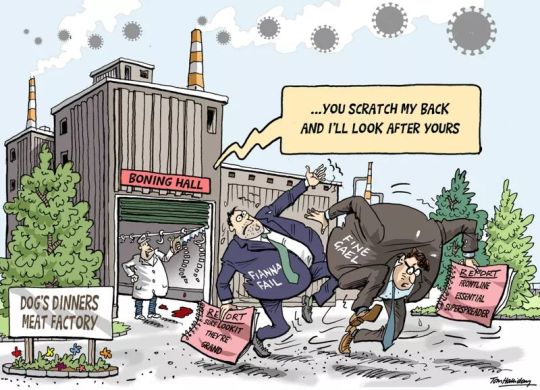
1 note
·
View note
Photo


Countess Markievicz becomes first woman elected to British parliament. [X]
On 28 December 1918, she was the first woman elected to the British House of Commons, though she did not take her seat — protesting British rule in Ireland. Along with the other Sinn Féin TDs, she formed the first Dáil Éireann (Irish government). She was also the first woman in the world to hold a cabinet position as Minister for Labour from 1919 to 1922.
487 notes
·
View notes
Note
What's your current favourite historical fact? Can be as much of a tidbit or an essay as you like!
Obviously I’ve been reading a lot about Dr Noël Browne lately and the mother and child scheme and his various other endeavors and misadventures, but medical nerd that I am it’s his health that I’m really fascinated by, and how that impacted on his political career and vice versa.
He was deaf in one ear, because he had measles as a very small child when the family briefly lived in Derry, around 1917 to 1920 or thereabouts, and the measles also damaged the sight in one of his eyes. When he was 24 and a medical student he first developed tuberculosis. This was ~1940, and by then the disease had not only killed both of his parents (his father died of it when he was 11, his mother when he was 13), but also two of his sisters and contributed to his brother’s death. His girlfriend (who would later become his wife) had also recently recovered from TB in her spine. He was in and out of hospital in Dublin after his diagnosis, and then spent 16 months in the Edward VII Sanatorium at Midhurst in Sussex, where he underwent several experimental treatments — including injections of Sanocrycin, a preparation made from gold, which left him very sick and caused a blood disorder.
At the time surgery, good food, and complete rest were really the only cures for TB. The most common surgery (carried out in England; surgery was used a good deal less in Ireland hence why he had been sent abroad) was thoracoplasty, where between four and eight ribs would be removed from around the worst affected lung, in order to collapse the lung and ensure complete rest of the organ in the hope the disease would go into remission. By 1942, his condition was so advanced that thoracoplasty was deemed too dangerous. Instead two ribs were removed from the right side of his chest, with the intention of injecting air into the cavity and so collapsing the worst-affected part of the lung. He bled so much during the surgery that the cavity filled with blood instead and remained like that for the rest of his life. He recovered, and the disease went into remission, but he was still technically tubercular and in 1944, when he got married, he was given only 6 months to live. He carried on and took as good care of himself as he could to beat that, while still working as a medical officer in sanatoria in England and then back in Ireland.
In 1948, when he became Minister for Health in the first Inter-Party Government (at barely 32), he had a medical exam which revealed he was essentially functioning on only his left lung, the right being so badly damaged, and the left was damaged too. Shortly afterwards he suffered a relapse of TB. His health was poor all through the three years he was in office, and he suffered two if not three relapses. The doses of streptomycin — streptomycin was a very new drug at the time — contributed to his hearing damage. Only his family and very close friends knew about his partial deafness, which contributed to a perception of him as being difficult to work with. Several people he worked with commented that he was better in one-on-one discussions, that in any sort of group he tended to withdraw and say very little, and it’s quite likely his hearing loss was a major factor in that.
His health seems to have improved after he resigned his office in 1951. The streptomycin likely contributed to that, as well as the reduction in stress. He continued working at the Newcastle sanatorium in Wicklow as a medical officer alongside his political activities, and mostly retained his seat in the Dáil (the Irish parliament) though he lost it a few times. Newcastle closed in 1963, thanks to the initiatives he’d brought in as Minister as well as the availability of streptomycin and the BCG vaccine having greatly reduced the rate of TB infections and deaths. Around this time he suffered yet another relapse of the disease.
After the closure of Newcastle, he found work in St Brendan’s, a mental hospital in Dublin, and trained to become a psychiatrist. In 1969, shortly after getting re-elected, he felt unwell one day at St Brendan’s and decided to lie down. When he didn’t feel any better, he diagnosed himself as having a heart attack, got up, and drove himself to the Meath Hospital where he was admitted and his self-diagnosis proven correct. He was again hospitalized for several weeks, but recovered and returned to work.
He retired from politics in 1982 when he was 66. His lungs continued to be frail, and he suffered a number of chest infections, before dying of pneumonia in 1997 at the age of 81, having survived 49 years after being given 2 years to live at most.
One of the criticisms leveled at him during his time as Minister was that he was frequently absent from Cabinet meetings and from the Dáil. A large number of these absences are now known to have coincide with his TB relapses and other bouts of illness. He was also more concerned with the running of the Department of Health (which was still a new department at the time) than the wider goings on in the government, and it’s generally accepted that he wanted to push through as many reforms as he could in as short a time as possible because he didn’t feel as if he had time to waste. He’s also known to have considered resignation on a number of occasions prior to the mother and child debacle, because of the toll his immense workload was taking on his health.
His biggest problem was always the damage to his lungs. He developed a signature style for giving speeches, by starting out very softly spoken which reduced the pressure on his lungs and also ensured his audience was listening in case they missed anything, and then gradually building up until he was nearing the end of his speech, by which time he’d be talking fast and vigorous and dramatic and it got the crowd going even as it exhausted him.
There’s so much more I could say, but suffice it to say that I am endlessly fascinated by him and his health and his attitudes towards tuberculosis and mental health, and how he managed to get so much done even with the very permanent and very severe damage his lungs had suffered. It’s like a cocktail of things that I’m fascinated by all embodied in one man.
#shauna replies#noel browne#anonymous#this got seriously out of hand but i have so many thoughts and feelings#and thank you so much for asking#history#irish history
2 notes
·
View notes
Text
#OTD in 1921 – Dáil Éireann debated, resolved and finally on 11 March declared war on the British administration.
In January 1921, at his first Dáil meeting after his return to a country gripped by the War of Independence, de Valera introduced a motion calling on the IRA to desist from ambushes and other tactics that were allowing the British to successfully portray it as a terrorist group, and to take on the British forces with conventional military methods. This they strongly opposed, and de Valera…

View On WordPress
#Anglo-Irish Treaty#Austin Stack#Éamon De Valera#British Cabinet#Cathal Brugha#Dáil Eireann#England#History#History of Ireland#Ireland#Irish Civil War#Irish History#Irish Republican Army#Lloyd George#Michael Collins#Sinn Fein#Winston Churchill
6 notes
·
View notes
Text
It Seems Like Nothing Changes
Paul Cussen
August 1919
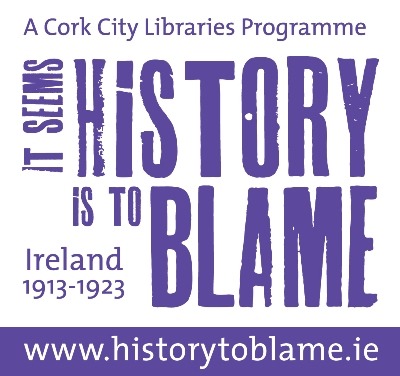
“A training camp for officers was held in Glandore in August, 1919. This camp was attended by the officers of the Barryroe Company. As far as I can recollect the camp was raided by enemy forces of Military and R.I.C. and had to be disbanded.”
- Lawrence Sexton, Courtmacsherry
Volunteer Michael Fitzgerald (a mechanic and mill worker as well as an active member of the Irish Transport and General Workers’ Union) having served three months for being part of the capture of Araglen RIC Barracks on Easter Sunday 1919, takes a leading part in the disarming of British soldiers at the Wesleyan Methodist chapel in Fermoy.

“It seems to me that England is gaily riding to ruin, unless there is some wonderful secret policy somewhere. I can’t see where it will all end. The futility and brainlessness of all leaders in every camp. With the exception of a few clever ‘doctrinaire’ socialist people who can state a case — they seem to be devoid even of common sense. The only way for an unorganised majority is to rush them in to doing things and to tell them what to do. Everybody seems to be splitting hairs about ‘direct action’ and other phrases, while one bit of liberty after another is taken from them. Lloyd George puts off and throws sops to Cerberus and every clique in England follows suit. They would sell their own souls for a few pence.”
- Countess Markievicz in a letter from Cork Jail, 14 August 1919
Earlier she had written "I have a lovely view over the River Lee, a garden full of pinks, constant meals sent in by local friends, and at night the most beautiful moths fluttering against the bars." And writing about the support she got from local ladies in the Cumann na mBan she said, ''I got lovely roses and such heaps of strawberries and cream too. Friends are so good to me. If you want to be really appreciated in Ireland, go to jail!"
The Irish Victory Fund appeal, which had started in February at the Irish Race Convention, raised just over $1,005,080 within six months.
James Joyce begins to write “Circe” and begins to copy “Cyclops” while a production of Exiles is mounted at the Munich Schauspielhaus and quickly closes due to harsh criticism.

The mayor of Liverpool enlists 700 troops from the local garrison to combat mass looting when the police go on strike.
“Dock rats reeling like ships in a storm from drunken spite within them, and brandishing a weaponry of axes, sticks and crowbars ... a pack of wild women, hair streaming over shawled shoulders, ready to back them with their talons, grasping bricks and broken bottles ... rodents, bloody rodents every one of them.” - opinion of looters by demobbed soldier employed on police force during strike
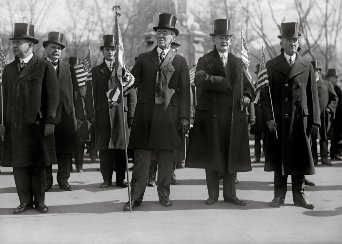
President Wilson at a parade to honour his return from the Paris Peace Conference
Józef Piłsudski fails to overthrow the existing Lithuanian government of Prime Minister Mykolas Sleževičius, and install a pro-Polish cabinet. One hundred and seventeen people are arrested and six receive life sentences.
1 August
Dave Creedon is born near Blackpool (d. 2007)
Stanley Middleton is born in Bulwell, Nottinghamshire (d. 2009)

2 August
14-17 people die in the Verona Caproni Ca.48 crash, Italy’s first aviation disaster.
3 August
Joyce writes to John Quinn that it takes him "four or five months to write a chapter" of Ulysses.

4 August
Sgt. Daniel Hayes dies of chronic bronchitis at the Central Military Hospital.
Constable Michael Murphy and Sergeant John O’Riordan are fatally shot while on patrol at Ballyvraneen, between Ennistymon and Inagh in County Clare.

The Rodin Museum opens in Paris in the Hotel Biron. It contains works by the sculptor which have been left to the state.
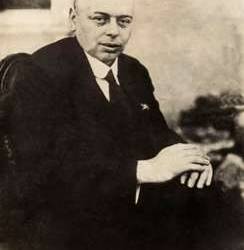
Béla Kun flees to Vienna after the Hungarian Soviet Republic is overthrown by the Romanian Army.
5 August
The RIC seize a letter from Michael Collins, Minister for Finance, Dáil Éireann, 6 Harcourt Street Dublin, to Terence Mac Swiney, T.D., Corcaigh Meadh (Mid Cork), regarding the arrangement for a meeting by each T.D. with the most prominent supporters of Sinn Fein in their Constituencies, with a view to forming a central committee for the entire constituency and certain local committees and the advancement of the Dáil Éireann Loan and requests ‘your loyal co-operation’.
6 August
The Denver Jewish Times reports on $5,000 donated to the Irish Victory Fund by Samuel Untermyer. This resulted in a high level of publicity in the Fund and the Irish Cause.

7 August
Charles Godefroy flies his Nieuport fighter under the arches of the Arc de Triomphe.
8 August
The Treaty of Rawalpindi is signed between Afganistan and the UK.
9 August
A secret week-long Volunteer training camp begins at Shorecliffe House, Glandore, Co. Cork for 35 battalion and company officers of the Cork No. 3 (West) Cork Brigade. The training officers are from Dublin Brigade and most lectures are given by Leo Henderson.
10 August
The Ukranian army massacres 25 Jews in Podolla. Massive pogroms are to continue until 1921.

11 August
Andrew Carnegie dies of pneumonia in Lenox, Massachusetts (b. 1835)
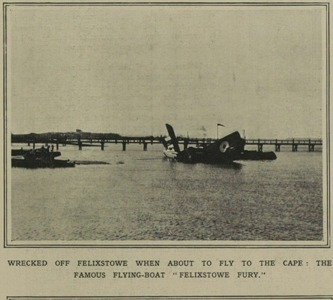
The Felixstowe Fury, while preparing for the 8,000 mile flight to Cape Town, side slips at low altitude and crashes. Wireless operator Lt S.E.S. McLeod drowns and the other six crew members are rescued.
The Green Bay Packers are founded and named after their sponsors, the Indian Packing Company.
12 August
Gearóid O’Sullivan (GHQ), Bernie O’Driscoll (Skibbereen), Seán Murphy (Dunmanway) and Denis O’Brien (Kilbrittain) are arrested at the training camp in Glandore which is surrounded by RIC and British military as some “incriminating documents or notes were found on them”.
http://www.bureauofmilitaryhistory.ie/reels/bmh/BMH.WS1493.pdf

14 August
Private John Waterfall dies at the Military Hospital from appendicitis/heart attack.
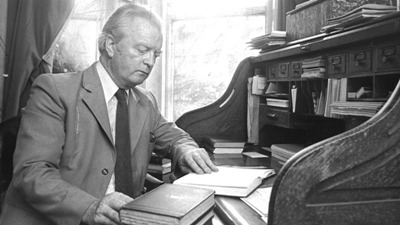
15 August
Benedict Kiely is born in Dromore, County Tyrone (d. 2007)
16 August
The Glandore training camp concludes. Six IRA Volunteers remove a section of track at Farganstown. The next train, however, is not carrying British troops, it is a goods train and it crashes into a nearby field. None of the train’s crew are injured
18 August
“... the hope that an army of military force might cowe the Irish into a frame of mind compatible with the eventual acceptance of some moderate measure of devolution has plainly miscarried”
- London Times
19 August
Afghanistan declares independence from UK.

20 August
Cathal Brugha puts a motion to the Dáil which is seconded by Terence MacSwiney that an Oath of Allegiance should be taken by all members and officials of Dáil Éireann, and all Irish Volunteers. The oath contains the phrase,
I will support and defend the Irish Republic and the Government of the Irish Republic, which is Dail Eireann, against all enemies, foreign and domestic…
22 August
Irish-American, John R. Shillaty is attacked and badly beaten by a mob in broad daylight in Austin, Texas. He is Executive Secretary of the NAACP. He is escorted to the train by the mob and the sheriff
“Your secretary, John R. Shilladay, reached Austin and was received by red blooded white men. As we didn’t need any of his kind (negro-loving white men) we have sent him back home to you. We attend to our own affairs down here, and suggest that you do the same up there” - Deputy Sheriff Gene Barbisch
23 August
15 year old Francis Murphy, a Sinn Féin scout of Glan, County Clare is shot dead by British Soldiers. He dies as a result of bullet wounds received while sitting by the fire reading a book. The inquest into his death concludes that the murder was carried out by the military as revenge for the shooting of Constable Michael Murphy and Sergeant John O’Riordan at Ballyvraneen.

24 August
St Colman’s Cathedral, Cobh, is consecrated by the bishop of Cloyne, Robert Browne. In attendance is the primate of all Ireland, Michael Logue, the archbishop of Cashel, John Harty and the archbishop of Tuam, Thomas Gilmartin.
The Munster Final is held in Limerick’s Markets Field with the result:
Limerick 1-6 Cork 3-5
25 August
Volunteers start taking the Oath of Allegiance and using the name Irish Republican Army.
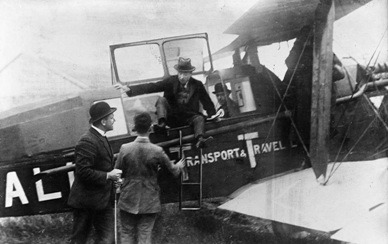
The world’s first daily international passenger air service commences when the British Aircraft Transport and Travel Company fly a deHavilland DH 16 from Hounslow Heath, London to Le Bourget airport, Paris.

26 August
Fannie Sellins (nee Mooney) witnesses guards beating Joseph Starzelski, a picketing miner from the Allegheny Coal and Coke Company, who is killed. When she intervenes, deputies shoot and kill her with four bullets then a deputy uses a cudgel to fracture her skull.

28 August
The amount of the national loan issued reaches £250,000.
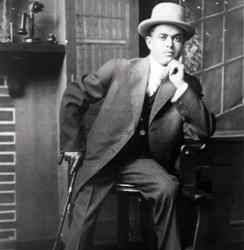
30-31 August
The Knoxville, Tennessee race riot begins after Maurice Mays (pictured above) is arrested for the murder of Mrs. Bertie Lindsey. A 5,000 strong mob storm the county jail and free 16 white prisoners. They also attack the African-American business district, where they fight against the district's black business owners, leaving at least seven dead and wounding more than 20 people.
An all-white jury takes 18 minutes to find Mr. Mays guilty of Mrs. Lindsey's death. He dies at age 35 in the electric chair in 1922, declaring his innocence to his dying breath.

31 August
Amrita Pritam is born in Gujranwala, Punjab (d. 2005)
The White Army capture Kiev and the Russian tricolor is placed next to the Ukrainian flag already posted on the Duma.
The Ukranian Army kills 35 Jewish defense group members.
2 notes
·
View notes
Text
Bulletin 3, 2023
Week 3—ending 22/01
Written by Dave McGinn
Irish translation by Noah Buffini Higgs available here
Paschal Donohoe Expenses
Minister for Public Expenditure and Reform Paschal Donohoe is under pressure to account for a failure to declare a donation of services received during the 2016 General Election campaign. Having previously apologised in the Dáil, the Minister intends to make a further statement on the matter this coming week.
Defective Properties Repair Plan
Cabinet has approved a plan for the State to provide financial support to owners of defective properties built during the Celtic Tiger. The plan is expected to cover repair work on up to 100,000 properties and is estimated that it will cost the exchequer between €1.5 billion and €2.5 billion.
Jacinda Ardern Resignation
New Zealand Prime Minister Jacinda Ardern has unexpectedly announced her intention to resign her position. Following a period of reflection over Christmas, Ms Ardern said, she decided that she did not have the energy to continue the work and to contest the next general election.
Enoch Burke
Teacher Enoch Burke has been dismissed from his position at Wilson's Hospital School in Westmeath. The decision follows a meeting of the Board of Management at which members of the Burke family confronted the Board and gardaí intervened to separate them.
0 notes
Photo

On this day, 1 December 1921, striking workers at Castleconnell fisheries in Ireland occupied their workplace and declared a soviet (workers council). The following day at a Dáil cabinet meeting, labour minister Constance Markiewicz was instructed to contact the ITGWU union and inform them that the soviet would be suppressed by the Irish Republican Army. Police and volunteers were also to be used to evict the strikers. However it appears this did not transpire, and the workers eventually vacated the premises voluntarily on December 22 after the boss agreed to arbitration, which later ruled in favour of the workers. Pictured: workers in a soviet in Bruree, Ireland, 1921 https://www.facebook.com/workingclasshistory/photos/a.296224173896073/1866384833546658/?type=3
82 notes
·
View notes
Text
I've been scrolling through the notes and I have yet to see her mentioned, soooo

Here's Constance Markievicz, AKA Countess Markievicz.
An Irish politician, revolutionary, nationalist, suffragist, socialist, the first woman elected to the Westminster Parliament, (but, in line with Sinn Féin abstentionist policy, she did not take her seat in the House of Commons) and was elected Minister for Labour in the First Dáil, becoming the first female cabinet minister in Europe.
During the 1916 Easter Rising, she was a member of Cumann na mBan (literally means "The Women's Council" but they called themselves "The Irishwomen's Council" in English), and was also the president from 1916-1926, and a member of the Irish Citizen Army. After they surrendered, Markievicz was arrested along with many others involved in the Rising. Originally sentenced to death, her sentence was commuted to life imprisonment. Upon hearing this, she said to her captors, "I do wish your lot had the decency to shoot me".
The wars/battles she took part in include the Easter Rising, the War of Independence, the Civil War, and the Dublin Lockout.

This is her in her Irish Citizen Army uniform.
Forgotten By History

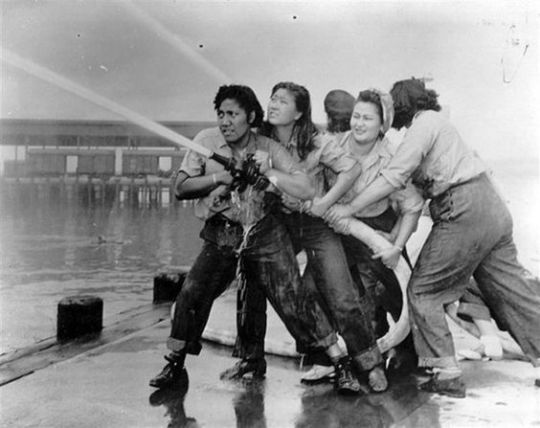
Female firefighters at Pearl Harbor (1941).

Donna Tobias - the first woman to graduate from the US Navy’s Deep Sea Diving School in 1975.
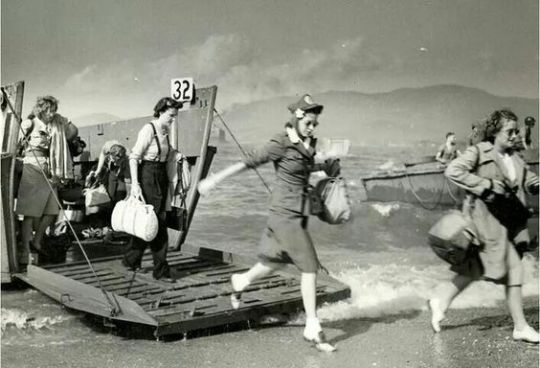
Brave women of the Red Cross hitting the beach at Normandy.

Dottie Kamenshek was called the best player in women’s baseball and was once recruited to play for a men’s professional team.
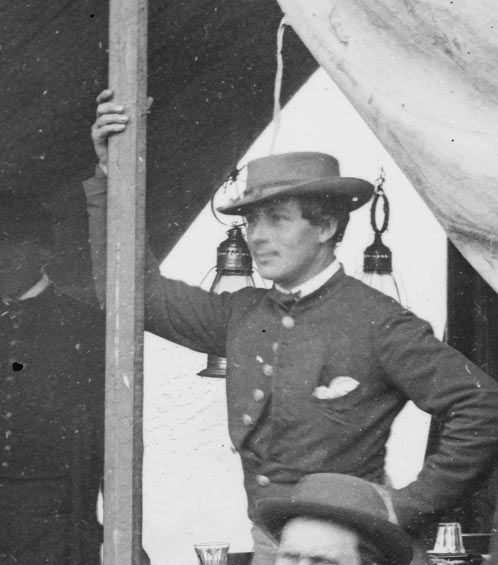
Kate Warne - Private Detective. Born in New York City, almost nothing is known of her prior to 1856 when, as a young widow, she answered an employment advertisement placed by Alan Pinkerton. She was one of four new agents the Pinkerton Detective Agency hired that year and proved to be a natural, taking to undercover work easily. She had taken part in embezzlement and railroad security cases when in 1861 the Pinkertons developed the first lead about an anti-Lincoln conspiracy.

Catherine Leroy, female photographer in Vietnam.
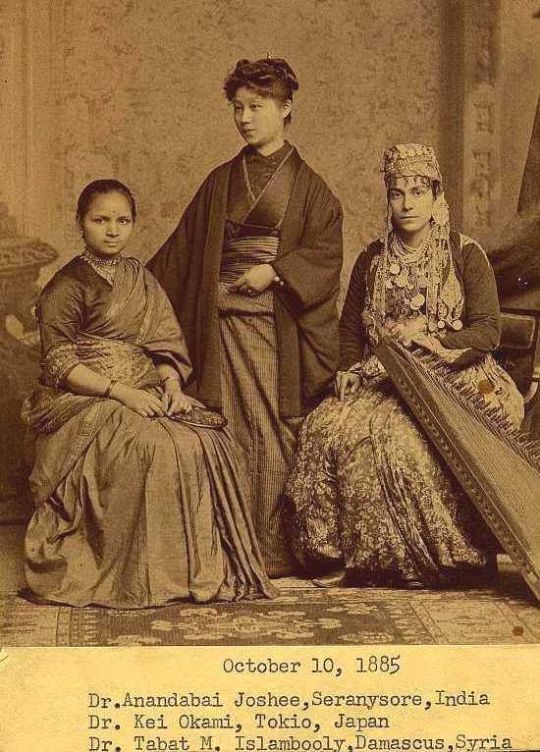
The three women pictured in this incredible photograph from 1885 – Anandibai Joshi of India, Keiko Okami of Japan, and Sabat Islambouli of Syria – each became the first licensed female doctors in their respective countries. The three were students at the Women’s Medical College of Pennsylvania; one of the only places in the world at the time where women could study medicine.

Female Samurai Warrior - Onno-Bugeisha - Female warrior belonging to the Japanese upper class. Many women engaged in battle, commonly alongside samurai men. They were members of the bushi (samurai) class in feudal Japan and were trained in the use of weapons to protect their household, family, and honour in times of war.

One of the most feared of all London street gangs from the late 1880’s was a group of female toughs known as the Clockwork Oranges. They woulde later inspire Anthony burgess’ most notorious novel. Their main Rivals were the All-female “the Forty Elephants” gang.

Maureen Dunlop de Popp, Pioneering female pilot who flew Spitfires during Second World War. She joined the Air Transport Auxiliary (ATA) in 1942 and became one of a small group of female pilots who were trained to fly 38 types of aircraft.
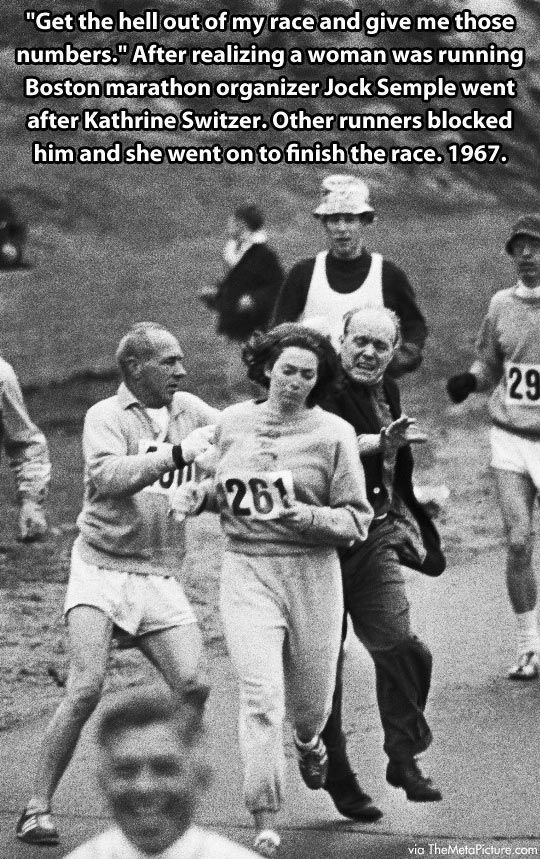
In 1967, Kathrine Switzer was the first woman to run the Boston marathon. After realizing that a woman was running, race organizer Jock Semple went after Switzer shouting, “Get the hell out of my race and give me those numbers.” However, Switzer’s boyfriend and other male runners provided a protective shield during the entire marathon. The photographs taken of the incident made world headlines, and Kathrine later won the NYC marathon with a time of 3:07:29.
#Constance Markievicz#Countess Constance Markievicz#Countess Markievicz#Ireland#Irish culture#Some of this may be wrong#But I only did some quick research when I saw she wasn't mentioned in the notes
148K notes
·
View notes
Link
The Irish government has confirmed that it will hold a referendum on reform of the country’s strict anti-abortion laws by the end of May. The cabinet agreed to give voters in the republic the chance to repeal the eighth amendment to the country’s constitution on Monday.
After a four-hour meeting, the Fine Gael-led minority coalition also decided to ask the electorate to endorse enabling powers to allow the Dáil (parliament) to draw up a new law that would eventually permit abortions in Irish hospitals up to 12 weeks into pregnancy.
Speaking after the meeting, the Taoiseach, Leo Varadkar, said: “We have abortion in Ireland, but it is unsafe, unregulated and unlawful, and in my opinion we cannot export our problems and import our solutions.”
His cabinet agreed to establish a referendum commission which will bring in opposition parties to help frame the exact wording of the national plebiscite.
Varadkar’s deputy prime minister and foreign minister, Simon Coveney, emphasised that the government was united on the issue. In a statement, he said: “The status quo of how women are treated in crisis pregnancy cannot remain. I am united with my cabinet colleagues in agreeing to repeal the eighth amendment and allow enabling legislation.”
Learn more: Coalition to Repeal the Eighth Amendment website
#feminism#feminist#pro choice#ireland#abortion#europe#health#women#reproductive rights#pregnancy#gender equality#repeal the eighth#repeal the 8th#gendered language#referendum#link#article
75 notes
·
View notes
Text
No more X cases, C cases, Miss Ys or Miss A, Miss B, or Miss C.
The full text of Taoiseach Leo Varadkar’s speech from last night, because I still can’t believe that a Fine Gael Taoiseach gave this speech, using such compassionate pro-choice language.
“This evening, the Cabinet gave formal approval to the holding of a referendum on abortion which will be held in late May or early June this year. We will know the exact date following a debate and vote in the Dáil and Seanad, and I am confident this timeline can be met.
The Minister for Health has been given approval to prepare a Referendum Bill to amend the Constitution. It will be the 36th amendment to the Constitution.
I want to thank the Citizens Assembly and the All-party Committee for the work they did to bring us to this point. Their advice and guidance has been invaluable.
We know that thousands of Irish women - women from every single county in Ireland - go abroad for abortions every year.
We know that many women are obtaining abortion pills through the post to end their pregnancies, without any medical support, or counselling, or supervision.
So, we already have abortion in Ireland but it is unsafe, unregulated and unlawful. We cannot continue to export our problems and import our solutions.
As Taoiseach - as a medical doctor - and as a former Minister for Health - I do not believe we can continue with a situation where women in crisis are risking their lives through the use of unregulated medicines.
I do not believe that the Constitution is the place for making absolute statements about medical, moral, and legal issues. An issue that is not black and white can never be explained in black and white.
I believe this is a decision about whether we want to continue to stigmatise and criminalise our sisters, our co-workers, and our friends. Or whether we are prepared to make a collective act of leadership to show empathy and compassion.
The amendment, if approved by the people, will delete article 40.3.3 in its entirety and remove the effective constitutional ban on abortion from Bunreacht na hÉireann.
It will repeal the Eighth Amendment and the 13th and 14th amendments which are linked to it.
It will also insert a new clause into our Constitution confirming that the Oireachtas may provide for the termination of pregnancies in accordance with law.
This is being done on the advice of the Attorney General, and will assure us that the Oireachtas has the power to legislate, and to balance any rights or interests, without preventing or restricting access to the courts on a point of law.
The Minister for Health will prepare a General Scheme of a Bill to regulate abortion which will come back to Cabinet for approval. This detailed General Scheme will be published prior to the Referendum and will be in line with the recommendations of the All-Party Committee. However, it cannot become law and will not be debated in the Oireachtas until the Referendum is approved.
So, it is important to say that the Referendum will not be on the draft legislation. The Referendum will be on the amendment to the Constitution.
If the amendment is approved in a Referendum, abortion in Ireland will become safe, legal and rare, in the situations provided for by the Oireachtas. If the referendum is defeated, the law will remain as it is now.
I know this will be a difficult decision for the Irish people to make. It is a very personal and private issue. For most of us, it’s not a black and white issue; it’s one that is grey. A balance between the rights of a pregnant woman and the foetus or unborn. It’s a matter for people to make their own decision based on the evidence they hear, compassion, and empathy. I want the debate to respectful on all sides, and should never be personalised.
However difficult, I believe the time has come to allow the people to make this decision. The question has to be a Yes or No one: do we reform our abortion laws or do we leave them as they are?
For my part, I will advocate for a Yes vote. My own views have evolved over time. Life experience does that.
It was as Minister for Health that I became convinced that abortion had no place in our Constitution. While I was not involved in either case directly, as Minister I was fully briefed on two significant cases. The first was that of Miss Y, an asylum-seeker, who was turned back from an English port when she sought to travel there for a termination. She subsequently became distraught, went on hunger strike, and became suicidal.
The second was the heartbreaking case of a woman who was clinically dead but on life support while the baby she was carrying remained alive for a time.
These cases should have been matters for the women concerned, their next of kin, and their doctors. Both were decided in the Courts due to the 8th amendment. Doctors seeking advice on what to do in difficult situations should refer to clinical guidelines, not to Bunreacht na hÉireann.
That’s why I called for change in the Dáil in December 2014. I believed we could no longer approach the issue with cold certainty but needed to do so with compassion.
On the matter of 12 weeks, as proposed by the All-Party Committee, people will have to make up their own minds, based on the evidence and their own conscience. In making my decision to support it, I listened to the views of others - medical experts, the public, my party and ministers, friends.
Above all, I listened to women. I had to think long and hard about the provision for abortion without a specific indication in the first 12 weeks. However the all-party committee has rightly pointed out the impossibility of requiring women to establish that their pregnancy was as a result of rape or incest. If we attempt to do so, we make them victims for a second time.
They also identified the fact that nearly two thousand women every year take the abortion pill on this island and that they do so without any medical advice or supervision. This is sure to result in another tragedy, another young woman losing her life, sooner or later.
If the referendum is approved by the Irish people, a doctor-led, safe and legal system for the termination of pregnancies will be introduced. There will be restrictions.
The pill which brings on miscarriage in early pregnancy will not be available on demand over the counter of a pharmacy or anywhere else. It will only be prescribed by a doctor who is on the specialist register.
Doctors will discuss with their patient the pros and cons of this option in a crisis pregnancy, other options, and offer counselling and other supports. Ultimately though, it will be the woman’s decision.
After 12 weeks’ gestation, abortion will only be allowed in exceptional circumstances such as a serious risk to the life or health of the woman or in the event of a fatal foetal abnormality. Ultimately, it will be a decision based on the wishes of the woman concerned and the best available medical evidence.
Safe, legal and rare.
No longer an article of our Constitution, but rather a private and personal matter for women and doctors.
No more X cases, C cases, Miss Ys or Miss A, Miss B, or Miss C.
In recent weeks many people, mainly men, have spoken about the personal journeys they have been on. But we should remember that the saddest and loneliest journey is made by the Irish women who travel to other countries in their thousands to end their pregnancies.
These journeys do not have to happen, and that can change.
That’s now in our hands.”
13 notes
·
View notes